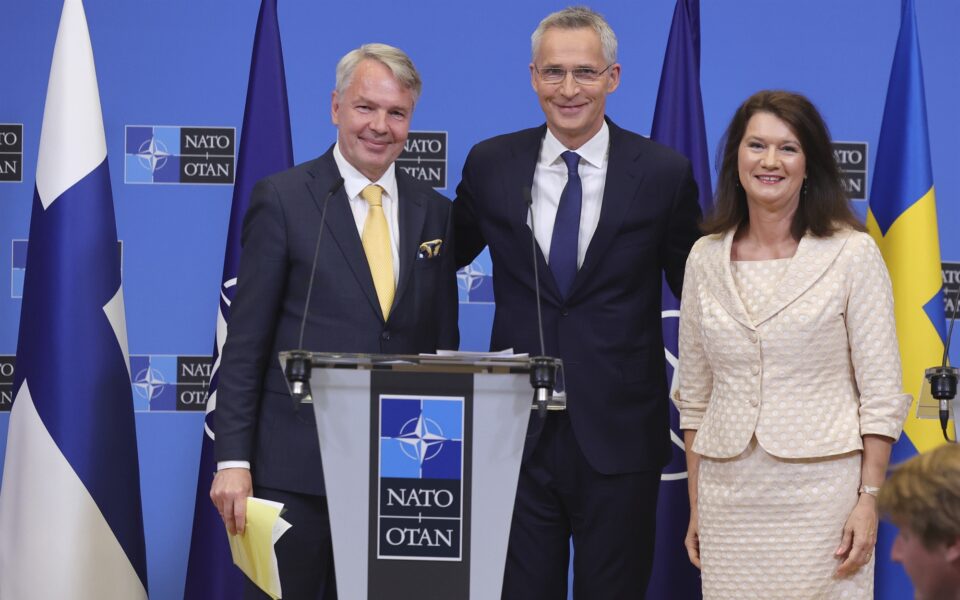By Phaidra Chrysostali,
A few days ago, the Turkish members of the Parliament (MP’s), approved Sweden’s effort to join NATO after a long-delayed vote. This represents a major step forward on the Nordic’s path to membership since Sweden’s accession to NATO, alongside with Finland being the newest member, bridges a crucial gap in the region’s security architecture and at the same time reveals new opportunities for closer security cooperation. Once Sweden becomes a member of NATO, the Baltic Sea will be a geographically coherent strategic space, powerful for future challenges.

There is no doubt that Sweden’s accession to NATO has the competence to reinforce the Alliance’s defense and deterrence position, especially relating to the security of northeastern Europe. The above can be realized by the fact that Sweden has been a close NATO partner for many years and is considered one of the most reliable countries in the transatlantic community. Therefore, the international community has a lot of expectations for Sweden. Nevertheless, Sweden will be required to reevaluate its defense policy if the government wants to achieve a successful institutional and operational integration into NATO. Up to now, Sweden has always focused on self-defense instead of collective defense, making it difficult to grasp the complex implications of becoming a member of a large alliance without losing its own voice and value along the process.
From a geographical perspective, Sweden has the longest Baltic Sea coastline in Europe, making it extremely important to the Alliance’s goals to increase its influence and military control over the Baltic Sea. At the same time, it connects the High North, the North Atlantic, and the Baltic Sea, offering an opportunity for a coherent and integrated defense for the entire region. As a result, the Swedish territory will make NATO more resilient when it comes to geopolitics and will provide options for defense and deterrence missions.
Among NATO’s goals is that each member country has to spend two percent of its gross domestic product (GDP) on defense yearly and Sweden is very close in reaching the two-percent goal in 2024. This will allow a focus on investments on the Swedish Armed Forces’ personnel, military innovation and development as well as to future contributions related to NATO’s deterrence and defense missions. In addition, the above are forcing Sweden to increase its defense budget and to develop its defense policy after decades of underinvestment and will further pressure it since NATO has redefined the target of two percent of GDP as a floor and not a ceiling. Therefore, there should be a continuous investment of its defense capabilities.
From the above mentioned, it is crucial for Sweden to become a NATO member since it will bring a significant number of resources (geographic, financial, operational) to NATO. Moreover, Sweden’s expertise and capabilities on the political and policy levels can offer valuable advice especially to issues such as energy that is of outmost importance nowadays.
In conclusion, the war in Ukraine has highlighted to NATO its importance in the international scene and the need to reevaluate its defense and deterrence in order to be protected from what the future in geopolitics holds. Sweden’s membership should strengthen the transatlantic community, during this turbulent moment, through its advanced military capabilities, defense-industrial base, political and operational sophistication and geography. These qualities are much needed today and will make a strong impact to the alliance. However, Sweden’s integration will not be an easy process and will require many resources and transformations in order for Sweden to become a valuable and worthy member.
References
- Sweden’s accession will make ‘a lot of improvements’ to NATO: Swedish FM Billström. FRANCE24. Available here
- Here’s what to know about Sweden’s bumpy road toward NATO membership. AP news. Available here
- Turkey parliament backs Sweden’s Nato membership. BBC. Available here




